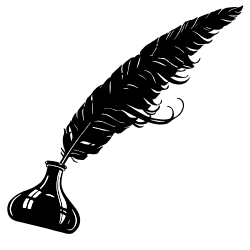Writing tips
Avoiding the Comma Coma and Other Sanity Savers
Compiled by Judy Ratto
“I’ve had two editors go over my book. One added a bunch of commas and the other took a bunch out. How do I know which is correct? Where am I supposed to use commas? As a published author, you’d think I’d have a handle on this by now.” P.T.L. Perrin
Thanks to Judy’s research, we can figure it out. We have a checklist. Judy has compiled an easily understood handbook of answers to common grammatical conundrums. Thanks, Judy.
Writers, start your engines and grab your red pens! Then scroll down until you find the answer you need.
5 Title-Picking Tools
by KJ Bagwell
Unlock reader interest with these 5 title picking tools. Your book title is important. It’s the first thing editors and readers see. For a lot of years I knocked around a lot of publishing houses and learned how to ask targeted questions. So, instead of trying to tell you what to do, I’m sharing a smattering of questions I recall from my on-the-job training. I put them in checklist form to help you explore various options for the best title for your next book.
Fizzle or Sizzle? How Genre is Fundamental for Story Success

By Kristen Lamb
Genre is a word that makes a lot of new writers cringe. Many (mistakenly) believe any kind of boundaries will somehow impair or restrict creativity and crater imagination. This is why so many emerging authors (myself included) avoid learning about structure or how to plot until forced to…at gunpoint.
Fine! Yes, I’m being melodramatic, but close enough to the truth.
It’s easy to understand why we want to skip all that boring stuff. We’re eager to write, to create, to unleash the muse! Yet, in our haste, we can lose sight of what we stand to gain by truly understanding the fundamentals and respecting boundaries.
The Log-Line: Can You Pitch Your ENTIRE Story in ONE Sentence?

By Kristen Lamb
Today we’re going to chat about log-lines. Some of you might be wondering if I was trying to give you a heart attack with my title. Maybe you think this feat is impossible. AN ENTIRE NOVEL IN ONLY ONE SENTENCE?
Anatomy of a Best-Selling Story--Structure Part One
by Kristen Lamb
Writers must understand structure if they hope to be successful. Yes, it might take five years to finish the first novel, but if we land a three book deal, we don’t have 15 years to turn in our books. Also, in the new paradigm of publishing, writers who produce more content have greater odds of making money at this writing thing.
Understanding structure helps us become faster, cleaner, better writers. Structure is essential to all stories, from screenplays to novels to epic space operas.
Anatomy of a Best-Selling Story--Part Two
by Kristen Lamb
Last post, I started talking about the dreaded topic…structure. I write these posts because I really DO want you guys to succeed and as an editor for far too many years, the single biggest reason most new novels flop? Structure. Pretty prose does not a novel make. Each of these blogs will build upon the previous lesson. By the end of this series, I hope you to give you guys all the tools you need to be “structure experts.”
Yes, even the pantsers.
To Copyright, or Not to Copyright?
by PTL Perrin
To copyright or not to copyright? If the content of your work is automatically copyrighted to some degree when you publish it, why go to the bother of getting it done officially? Pirates. That’s right. Pirates: unscrupulous plagiarizers. Seriously?
Editing
How Does Book Editing Work?
- Self-editing
- Beta readers
- Professional editing
So You Need An Editor -- What Kind?
You’ve finished your book! You’ve read the first draft and revised it as best you can. You may have had Beta readers or a critique group give you their input and now you’re ready to publish. Or are you?
Professional editing is one step no author should skip. That last look by someone with experience, who can catch things your eyes don’t see, is critical before you place your book into the hands of readers who will see every mistake.
What kind of editor does your manuscript need? It can be confusing, especially for a new author trying to figure out the many steps to getting your book published. Author Terri M. Collica has boiled it down for you in this informative article.
How to Establish a Successful Freelance Editng Business
[excerpt] I have contact with so many writers. Many of them want to make a living as a writer or dream of that big film contract. My advice is to dive in and get started. Get your feet wet. Never stop learning and improving your skills.
Also, surround yourself with a team of people you can trust. Writers need beta readers and critique partners. Seek out like-minded people and get new ideas.
And when it’s time to do so, find a professional editor who will help you polish your work without changing your voice or your intent. Be wary of those who work for little pay and seem to be available at a moment’s notice. If they’re good at what they do, you’ll have to spend some money to hire them, and you will probably have to wait a bit.
Publishing
5 Common Writing And Publishing Mistakes First Time Authors Make
by Savannah Cordova
“Failures are just learning opportunities that have presented themselves successfully.” If you’ve come across that sentiment before, it’s probably because there are countless quotes from numerous successful people about the value of making mistakes. If you’ve read a few self-help books or follow any motivational influencers in Instagram, it may even seem a little trite.
But the reason this idea is so pervasive is because it’s true — especially when it comes to writing and publishing a book!
The Ultimate Guide to KDP: How to Succeed on Kindle Direct Publishing
What do Andy Weir and Luke Jennings have in common? Not much — at least until self-publishing through Amazon changed their lives. Jennings, with his Booker Prize nomination, already belonged in the writerly mainstream. Weir, on the other hand, wrote code before he ever wrote novels, learning C as a teenager to work with combustion researchers. Since then, both have released books through Amazon’s self-publishing platform, Kindle Direct Publishing.
Authors Beware: Scams and Publishing Companies to Avoid
Becoming a published author is a fantasy shared by almost all writers. And as with almost any widely-shared ambition, there are also folks out there looking to make a quick buck by exploiting those dreams — whether they involve securing a book deal or going the indie publishing route.
The publishing world has its fair share of scammers and disreputable companies. At Reedsy, we regularly hear from authors who, despite being well-informed and educated people, have fallen prey to these scammers. In this post, we’ll take a closer look at common writers scams and show you how to identify the publishing companies to avoid on your journey to publication.
Self-Publishing vs Traditional Publishing: Which one is right for you?
In this post, we’ll go through the pros and cons of both publishing methods and help you decide which one is best for you as an author.
Marketing
How to Get Book Reviews On Amazon in Five Simple Steps
Imagine the day of your book launch. You’re sitting in front of your computer, picturing all the five-star book reviews that will soon be yours… but then the days pass, and no reviews come.
Not to be overdramatic, but getting enough book reviews could just make or break your sales. Reviews don’t directly sell books nor affect Amazon algorithms — but they are one of the three main factors (along with the cover and the blurb) that make a reader click that “Purchase” button.
70+ Book Marketing Ideas To Rocket-Boost Your Sales
No matter what kind of book they’re writing, every self-publishing author will eventually arrive at the same question: what’s the best way to market it?The good news is that tons of other indie authors have grappled with this question already — and that by following in their footsteps, you can create a book marketing plan that will have your book flying off the shelves.
In this post, we offer up 70+ book marketing ideas to help you out. It also features a free book marketing checklist you can print out and use to track your progress!
I wish I hadn’t done that: Tales from the book promotion road
By Randi Minetor
Note from Sandra Beckwith: While driving back from a recent American Society of Journalists and Authors chapter meeting, Randi Minetor and I started talking about her recent book marketing experiences. This helpful “lessons learned” guest post is the result of that conversation. Randi is the author of more than 60 books on national parks, travel, American history, birds and birding, trees and wildflowers, psychology and sociology, and a wide range of general interest topics.
We sat at the six-foot table in the middle of the Wild Birds Unlimited store in a small Connecticut town, and we waited.
The owners had invested in 15 copies of our latest book, our magnum opus: Birding New England, an overhaul and relaunch of publisher Falcon Guides’ Birdfinding series. The new format replaces the text-grayed pages and black-and-white photos of the original series with hundreds of full-color bird photos and specific information on where to find each species.
They’d also bought a plate of Italian cookies.
The cookies, it turned out, were the more popular investment.
If you’d like to comment on any of these articles, particularly the ones that point back to someone’s blog, please be sure to leave comments there, or interact with the writer directly. If you’d like to submit an article, or a link to one you found helpful, then please send info about it to Seaquillpress@gmail.com.
SeaQuill Writers
2019 Copyright Protected
SeaQuill Writers LLC / Site design by SeaQuill Writers / Built with WordPress + Divi Theme


